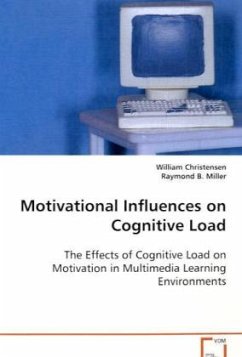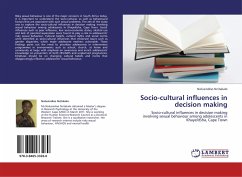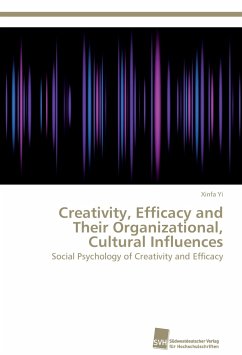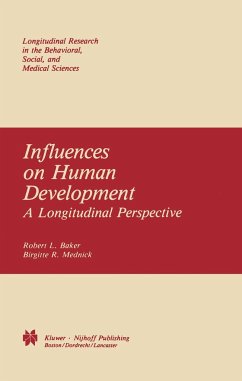
PARENTAL SEX-STEREOTYPIC INFLUENCES ON SELECTED MOTIVATIONAL VARIABLES
AND ACADEMIC ACHIEVEMENTS OF MEHONI SECONDARY SCHOOL STUDENTS
Versandkostenfrei!
Versandfertig in 6-10 Tagen
39,99 €
inkl. MwSt.

PAYBACK Punkte
20 °P sammeln!
Children acquire initial education and socialization from parents and significant others. In short, parents are the child's first teachers. Children's motivational beliefs and their academic achievements may be influenced by the type and extent of feedback they receive about performance, messages from parents, and other adults about the child's ability in a particular domain. Parental stereotypic attitudes have significant effects on children's motivational beliefs and academic achievement. Children will have positive beliefs if the influence is positive, which, in turn, encourages them to ach...
Children acquire initial education and socialization from parents and significant others. In short, parents are the child's first teachers. Children's motivational beliefs and their academic achievements may be influenced by the type and extent of feedback they receive about performance, messages from parents, and other adults about the child's ability in a particular domain. Parental stereotypic attitudes have significant effects on children's motivational beliefs and academic achievement. Children will have positive beliefs if the influence is positive, which, in turn, encourages them to achieve high. In this work, it is assumed that parents' views of their children's competencies are influenced by their interpretive belief systems. Parents' sex-role belief systems affect the inferences parents draw from their children's performance about their children's competence in various sex-role stereotyped activity domains. These inferences, in turn, affect parents' expectations for their children's performance and then could affect children's beliefs of their parents' beliefs and sex-roles, children's interpretations of experiences, and their academic achievement.












